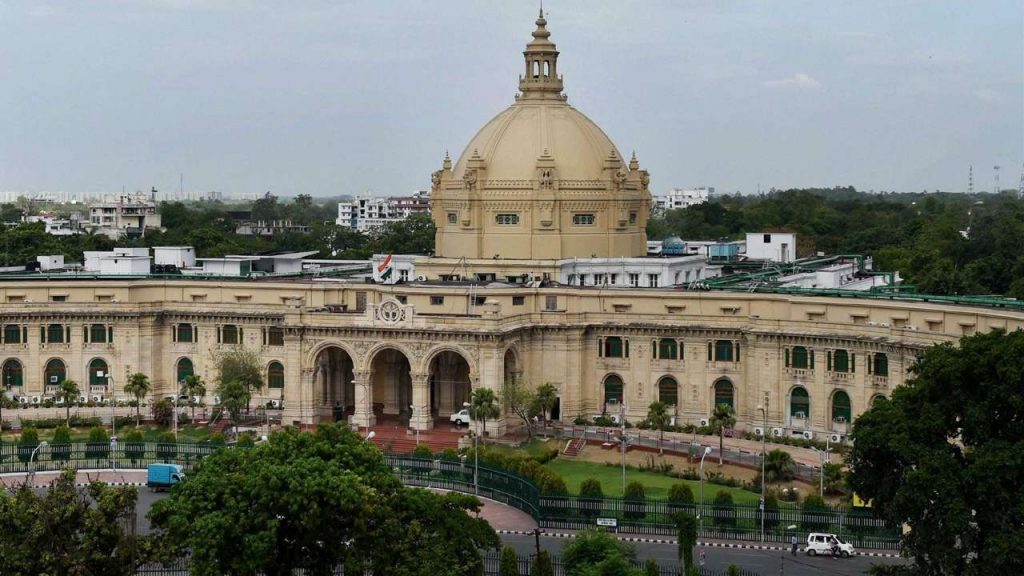The Samajwadi Party’s defeat in two Uttar Pradesh by-elections, the Trinamool Congress’s miserable performance in the Tripura polls and the BJP’s strangulation of the ruling Maharashtra Vikas Aghadi with the help of the Shiv Sena rebels, are signs of the BJP juggernaut’s – bulldozer’s? – relentless progress in various directions.
To underline its dominance, the arrests of several activists, including two former police officers, who were involved in the cases against the BJP in the 2002 Gujarat riots, have emphasized the helplessness of the BJP’s critics in standing up to the ruling party at the centre.
As it is, a number of prominent activists – Gautam Navlakha, Anand Taltumbde – have been in jail for months even as one of them, Stan Swamy, died while in detention. Their cases seem to drag on interminably.
Therefore, whether it is the electoral politics or legal entanglements, the BJP appears to have the upper hand. The party’s forked-tongue also enables it to support freedom of speech at an international gathering while jailing activists and journalists at home.
In contrast, the BJP’s opponents appear flat-footed where tactics are concerned and clueless about ways to counter the BJP’s relentless political drive backed by an overflowing treasure chest, the indefatigable energy of the leaders and cadres and an ideological certitude based on strident Hindu nationalism and vicious Islamophobia.
In the face of such an onslaught, the opposition parties forever appear to be on the retreat. It is not only that they are palpably on the defensive with regard to offering a frontal challenge, their lethargy also continues to be their Achilles heel.
An evidence of this self-destructive lassitude was the Samajwadi Party chief, Akhilesh Yadav’s decision to stay away from the campaign for the Rampur and Azamgarh by-elections which the party, predictably, lost. If the decision was based on an overweening self-confidence in the capacity of the MY (Muslim-Yadav) vote bank to beat back the BJP, it showed a pitiful failure to assess the ground situation.
It is the kind of failure which is also evident in Rahul Gandhi’s frequent foreign trips which confirm his reputation as a part-time politician with little interest in a sustained effort to wrest power from the BJP. It’s an image which bolsters the BJP’s position just as Manmohan Singh’s weakness vis-à-vis Sonia Gandhi and her kitchen cabinet of Left-leaning activists helped Narendra Modi to build up his standing as a “strong” leader.
Unlike Rahul and Akhilesh, Mamata Banerjee is a hand-on politician who wins elections. But her influence is limited to West Bengal. As her failure to make any headway in Goa earlier this year and now in Tripura has shown, she doesn’t have the political imagination and drive to become an all-India figure.
If there was any state where she could have made an impact, it was Tripura with its large Bengali-speaking population. But she lacks the organizational skills needed to spread her wings. If she wins in West Bengal, it is because she faces in the BJP a party of Hindi-speakers who have little understanding of Bengali culture and (non-vegetarian) cuisine. Hence, her easy success in West Bengal like the DMK’s in Tamil Nadu.
But, like the DMK’s M.K. Stalin, Mamata will remain a provincial figure who will not be taken seriously outside her state in order to pose a major challenge to the BJP at the national level.
It is the same with K. Chandrashekar Rao whose writ begins and ends in Telangana. For all his recent efforts to present himself as an all-India personality who is ready to take on the BJP in the company of like-minded parties, Rao, like Mamata and Stalin, is unlikely to create splash outside his own state.
Arvind Kejriwal gave the impression at one time of outgrowing his image of being an outsider who operates beyond and above the existing constitutional system. It was a propensity which made the Union home minister of the time, Sushil Kumar Shinde, call him a “yeda (or unhinged) mukhya mantri” for sitting on a dharna on the streets of Delhi. Kejriwal had also sat on a dharna inside the Lt. Governor’s residence.
He has matured since then, apparently abandoning his former mentor, Anna Hazare’s influence who also regarded himself as being outside legal system. But, even then, Kejriwal does not seem willing to work along with other non-BJP parties. They, too, are evidently wary of accommodating an unreliable person like him. Kejriwal’s stance of a lone warrior was okay as long as he was winning elections in Delhi and Punjab. But his latest electoral defeat in Punjab has revived memories of his “yeda” days.
The BJP, therefore, appears well-placed to forge ahead at the national level even if it stumbles in state like West Bengal, Tamil Nadu and Telangana. But the economy remains a problem as also the party’s heavy dependence on Modi to bring in the votes. (IPA Service)

 Platform Jobs Chief Destination For Women After Education
Platform Jobs Chief Destination For Women After Education 